Tea ሻሂ in Tigrinya, an aromatic beverage enjoyed worldwide, holds a unique and cherished place in Eritrean and Ethiopian culture. In both Eritrea and Ethiopia, tea is not just a drink; it is an integral part of social rituals, a symbol of hospitality and a daily tradition that brings people together.
The Tradition of Tea in Eritrea and Ethiopia
In Eritrean households, tea time is a daily ritual, often enjoyed in the company of family and friends. The preparation and serving of tea are done with great love and respect, reflecting the cultural significance of this practice. Eritrean tea is typically black tea, brewed strong and sweetened generously with sugar. Spices such as cardamom, cinnamon, anise and cloves are often added, infusing the tea with rich, aromatic flavors. In some parts of Eritrea especially the lowlands, spices like ginger, lemon, mint are commonly used.
Growing up, tea is offered along with breakfast, snack, and even dinner time. Typically, breakfast is a piece of store-bought bread, homemade himbasha, or homemade kitcha accompanied by hot tea. Water is boiled in a big tea pot or kettle, ready before all the members of the family wake up in the morning. My husband and I still reminisce about when we used to drink cold tea directly from the kettle for a snack or after an afternoon nap as little kids.
To this day, I am a self-proclaimed tea connoisseur and can’t start my day with out tea. At home, we still dip a piece of bread in our hot tea and enjoy our morning or evening tea. Our kids enjoy a cup of tea and milk at least once a day. If a child comes to our home, as long as the parents are fine with it, we always have a tea party – a way for the kids to share their culture with their friends.
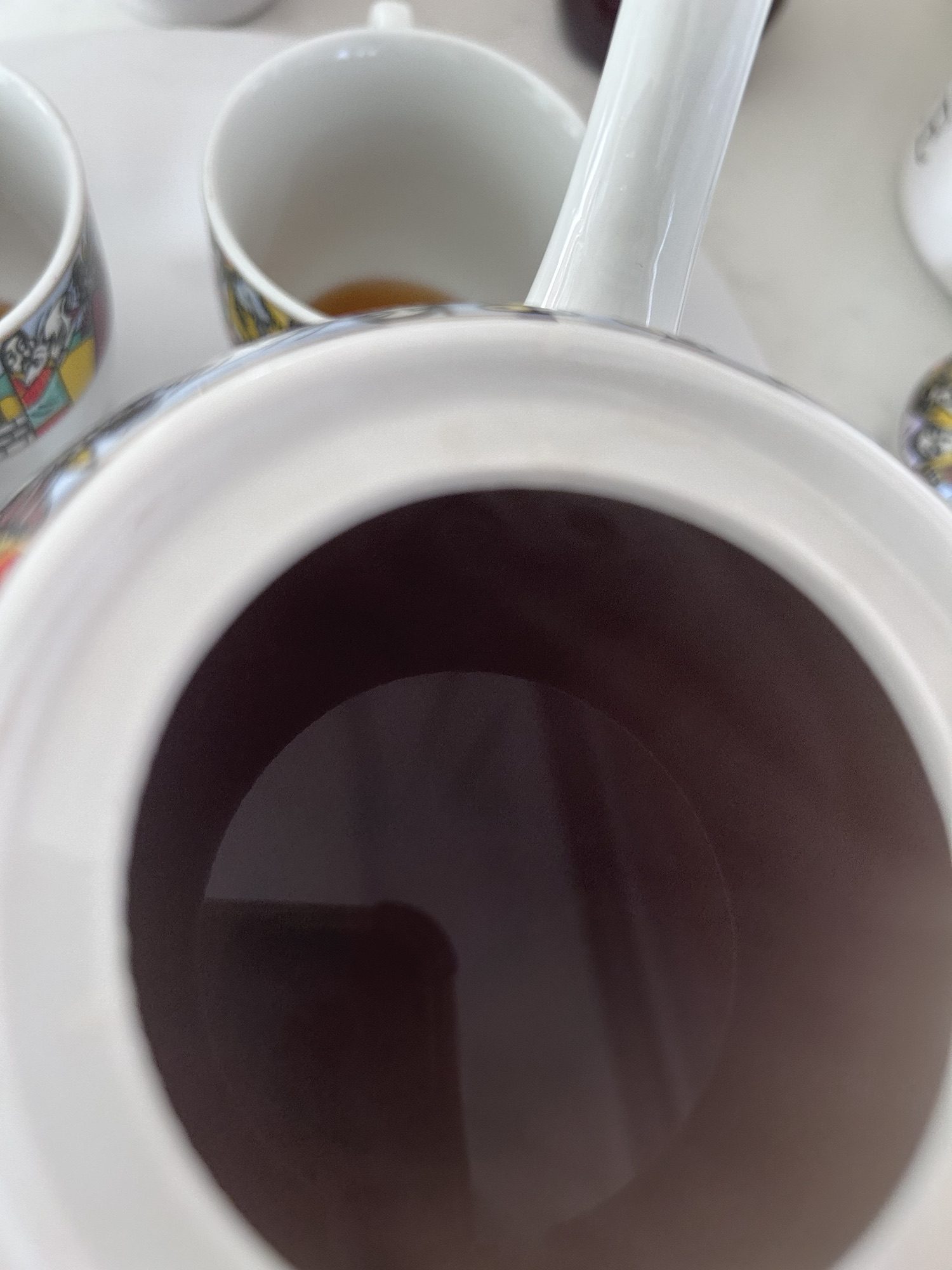
Tea, Hospitality and Social gatherings
Hospitality is a cornerstone of Eritrean culture, and tea plays a pivotal role in this. Offering tea to guests is a common practice, signifying warmth, respect, and welcome. When you visit an Eritrean home, you are often greeted with a steaming cup of tea, served in small glasses. This gesture is more than just a polite offering; it is an invitation to relax, converse, and share in the moment.
Tea is also central to social gatherings and celebrations. Whether it’s a wedding, a religious festival, or a simple get-together, tea is always present. The act of drinking tea together fosters a sense of community and belonging. It provides a setting for storytelling, discussions, and the strengthening of social bonds.
The art of brewing eritrean tea
Brewing Eritrean tea varies slightly from one household to another. The process typically involves boiling water with spices, adding loose black tea leaves, and letting them steep until the tea reaches the desired strength. Finally, a generous amount of sugar is stirred in before the tea is poured into small glasses and served.
Tips for choosing the best tea and spices
When preparing Eritrean tea, the quality of your ingredients plays a crucial role in achieving the authentic flavor and health benefits. Here are some tips to help you select the best tea and spices:
- Choose Organic Loose Tea: When buying tea, look for an organic single ingredient loose tea. Organic tea is essential because it is less likely to be sprayed with harmful chemicals during the harvesting process.
- Avoid Tea Bags: Opt for loose tea instead of tea bags. Most tea bags can release micro plastics and PFAS chemicals during the steeping process, which can be harmful to your health.
- Source Your Spices Carefully: Ensure that your spices are from a trusted source and not store-bought pre-packaged ground ones. Fresh, whole spices retain more flavor and health benefits.
- Prefer Ceylon Cinnamon: Due to its health benefits, I personally prefer to use Ceylon cinnamon. It has a milder flavor compared to the more common Cassia cinnamon and contains lower levels of coumarin, a compound that can be harmful in large quantities.
By paying attention to the quality of your tea and spices, you can ensure that your Eritrean tea is both delicious and healthy.
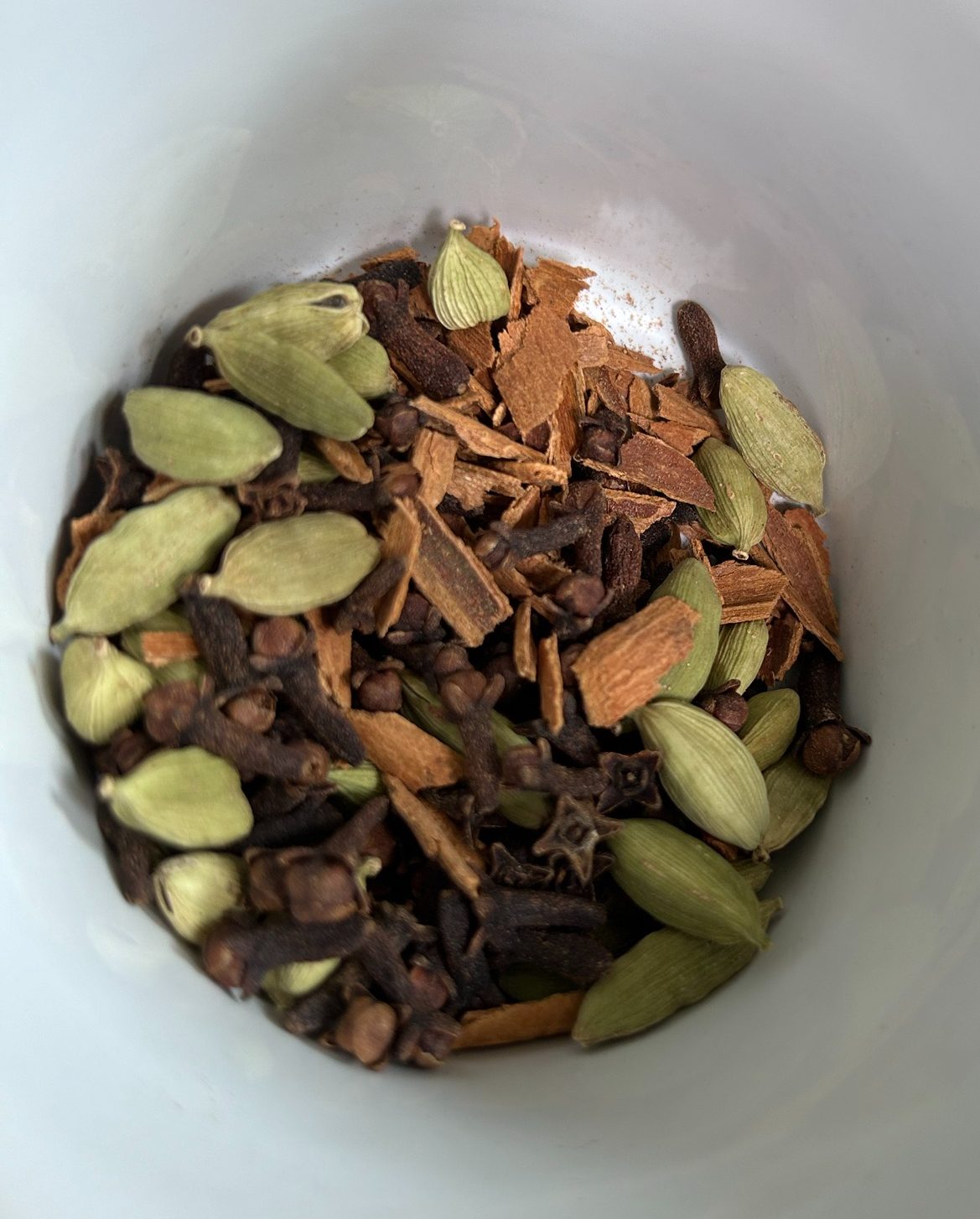
ingredients
- 6-7 cups water
- 4-5 pieces cloves
- ¼ cinnamon stick (preferably Ceylon cinnamon)
- 4-5 pieces Cardamom
- 1 tsp. loose black tea
- Sweetener – organic sugar or honey
instructions
- Prepare the Water:
- Pour 6-7 cups of water into a tea pot or kettle
- Add the spices.
- Measure equal amounts of cardamom, cinnamon, and cloves on a teaspoon and add them to the water.
- Boil the mixture:
- Bring the water and spices to a boil on a stove top.
- Add the tea leaves
- Carefully add 1 teaspoon of loose black tea (I usually use a loose leaf tea infuser). Let it steep until the desired strength is reached.
- Sweeten and Serve:
- Add the desired amount of sugar or honey to your cups.
- Pour the tea into cups and enjoy!



NOTE: This recipe serves 4 cups of 12oz. or 6 cups of 8oz. If there is some leftover tea in your kettle, pour it into a glass jar and refrigerate for use as cold tea to freshen you up during summer months.
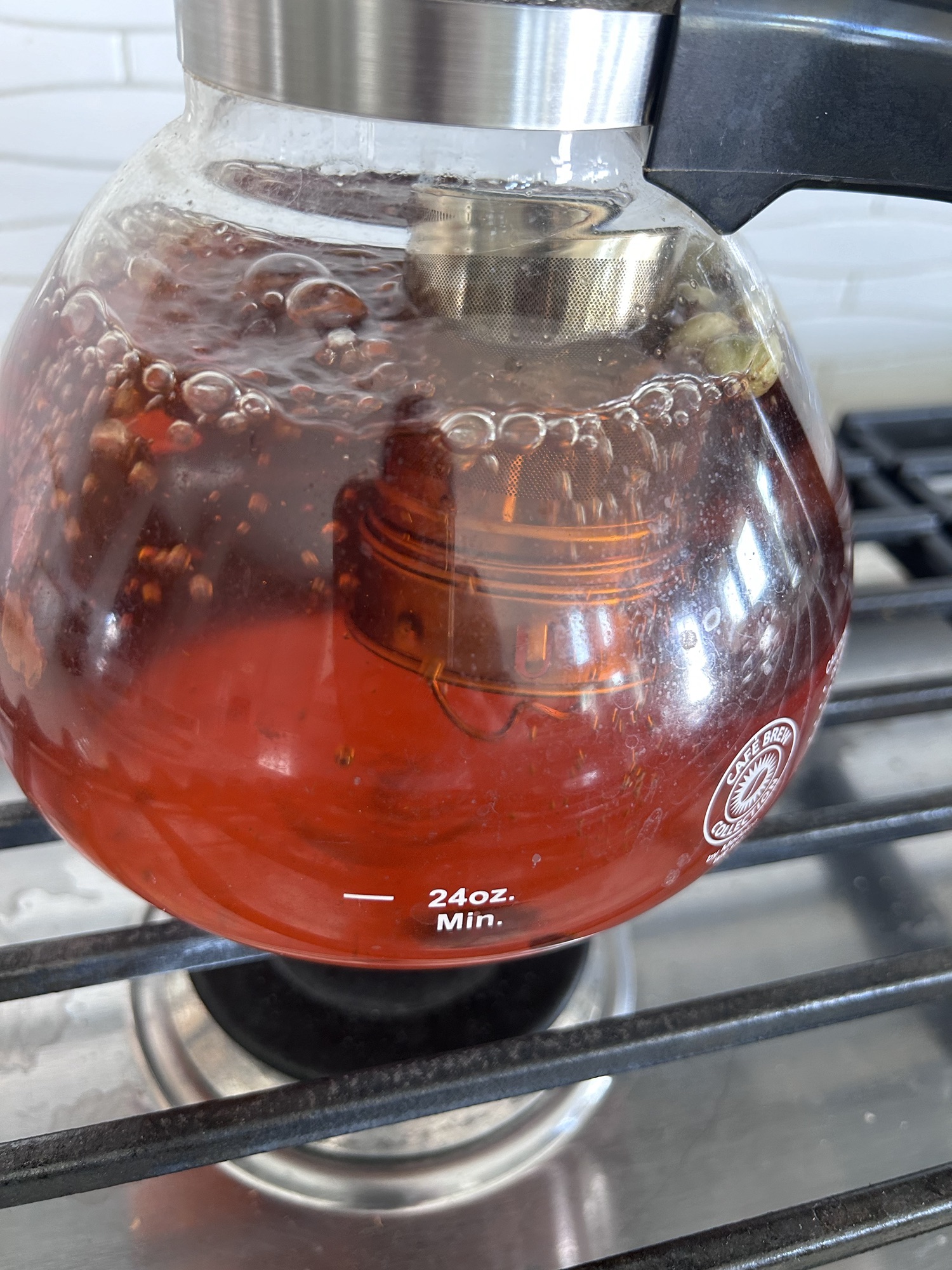
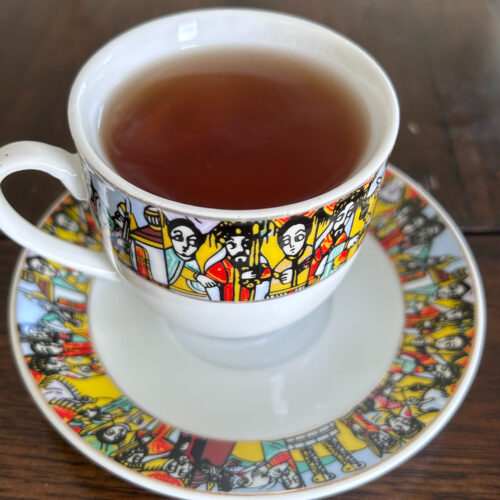
Shahi – Hot Black Tea
Equipment
- 1 Tea Kettle
Ingredients
- 6-7 cups water
- 4-5 pieces cloves
- ¼ cinnamon stick preferably Ceylon cinnamon
- 4-5 pieces Cardamom
- 1 tsp. loose black tea
- Sweetener – organic sugar or honey
Instructions
- Pour the water in a tea pot/kettle
- Add the spices. (You can measure your spices by placing equal amounts of cardamom, cinnamon and cloves on a tea spoon).
- Bring the water and spices to a boil on a stove top.
- Carefully add a tea spoon of loose black tea. Let it steep until a desired strength is reached.
- Add a desired amount of sugar/honey in your cups and enjoy.
- This recipe serves 4 12oz. cups or 6 8oz. cups
- If there is some leftover tea in your kettle, pour it in a glass jar and refrigerate for use as a cold tea to freshen you up in summer months.
Prepare the Water:
- Pour 6-7 cups of water into a tea pot or kettle
Add the spices:
- Measure equal amounts of cardamom, cinnamon, and cloves on a teaspoon and add them to the water.
Boil the mixture:
- Bring the water and spices to a boil on a stove top.
Add the tea leaves:
- Carefully add 1 teaspoon of loose black tea (I usually use a loose leaf tea infuser). Let it steep until the desired strength is reached.
Sweeten and Serve:
- Add the desired amount of sugar or honey to your cups.
- Pour the tea into cups and enjoy!
Tea Houses and Cafés
In urban areas, tea houses and cafés are popular spots where people gather to enjoy tea and engage in lively conversation. These establishments are cultural hubs where news is shared, friendships are forged, and the community comes together. The ambiance in these tea houses is often relaxed and welcoming, with the aroma of freshly brewed tea filling the air.
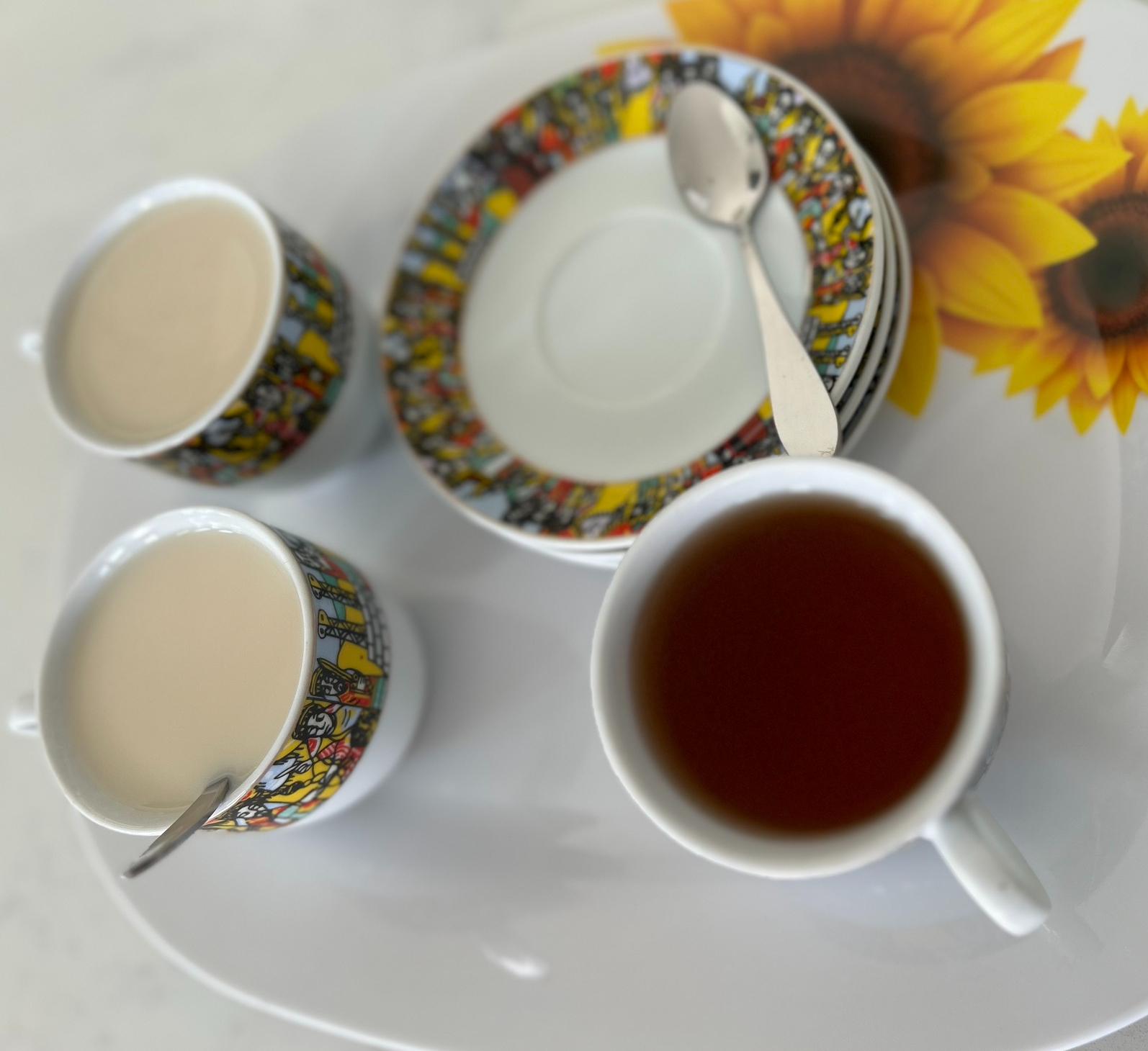
Conclusion
Tea in Eritrean culture is much more than a beverage. It is a symbol of hospitality, a daily ritual and a medium for social connection. The tradition of tea drinking reflects the values of respect, community, and togetherness that are deeply ingrained in Eritrean society. So, the next time you enjoy a cup of hot tea, think of Eritrea and the rich cultural tapestry that this simple drink represents.
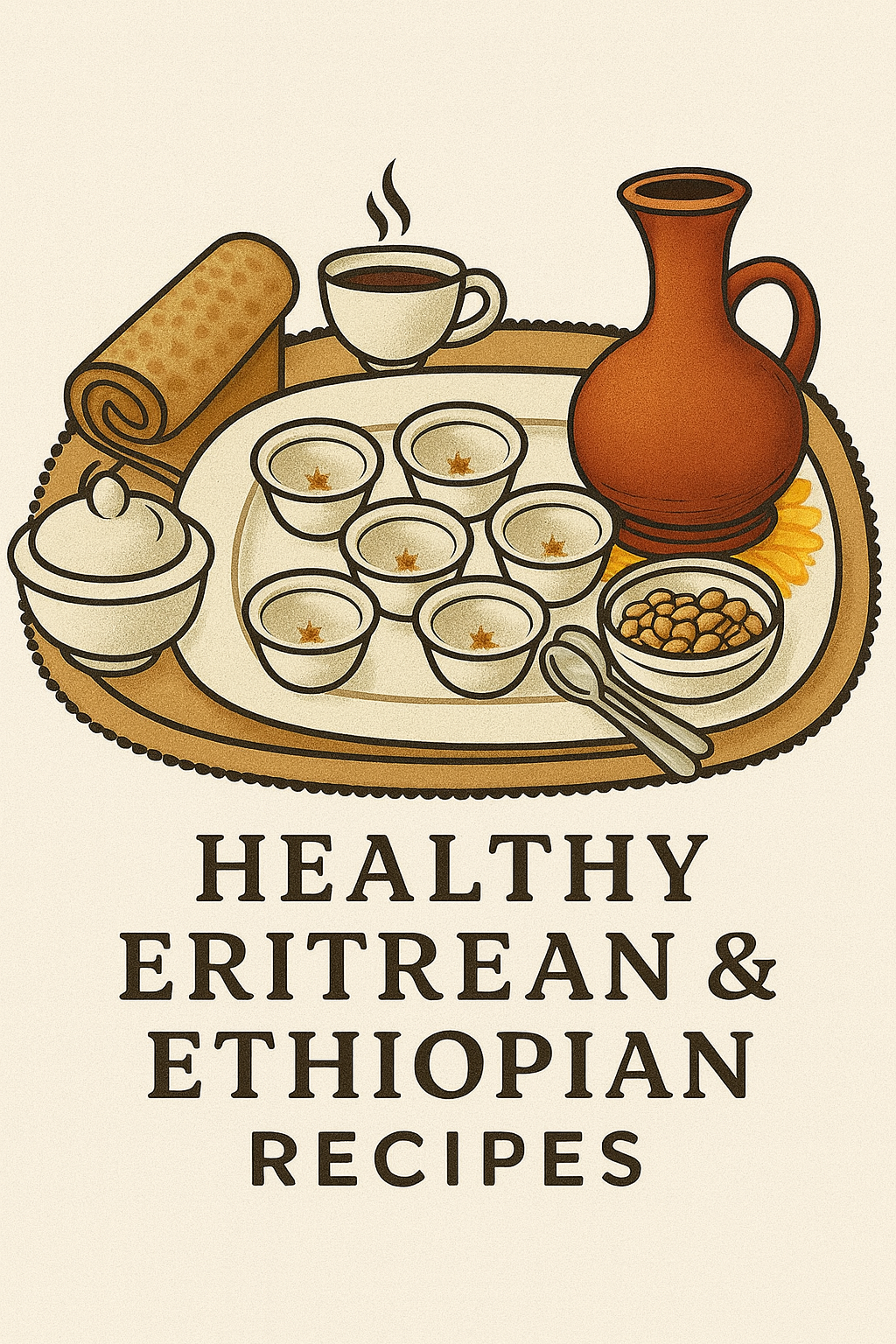
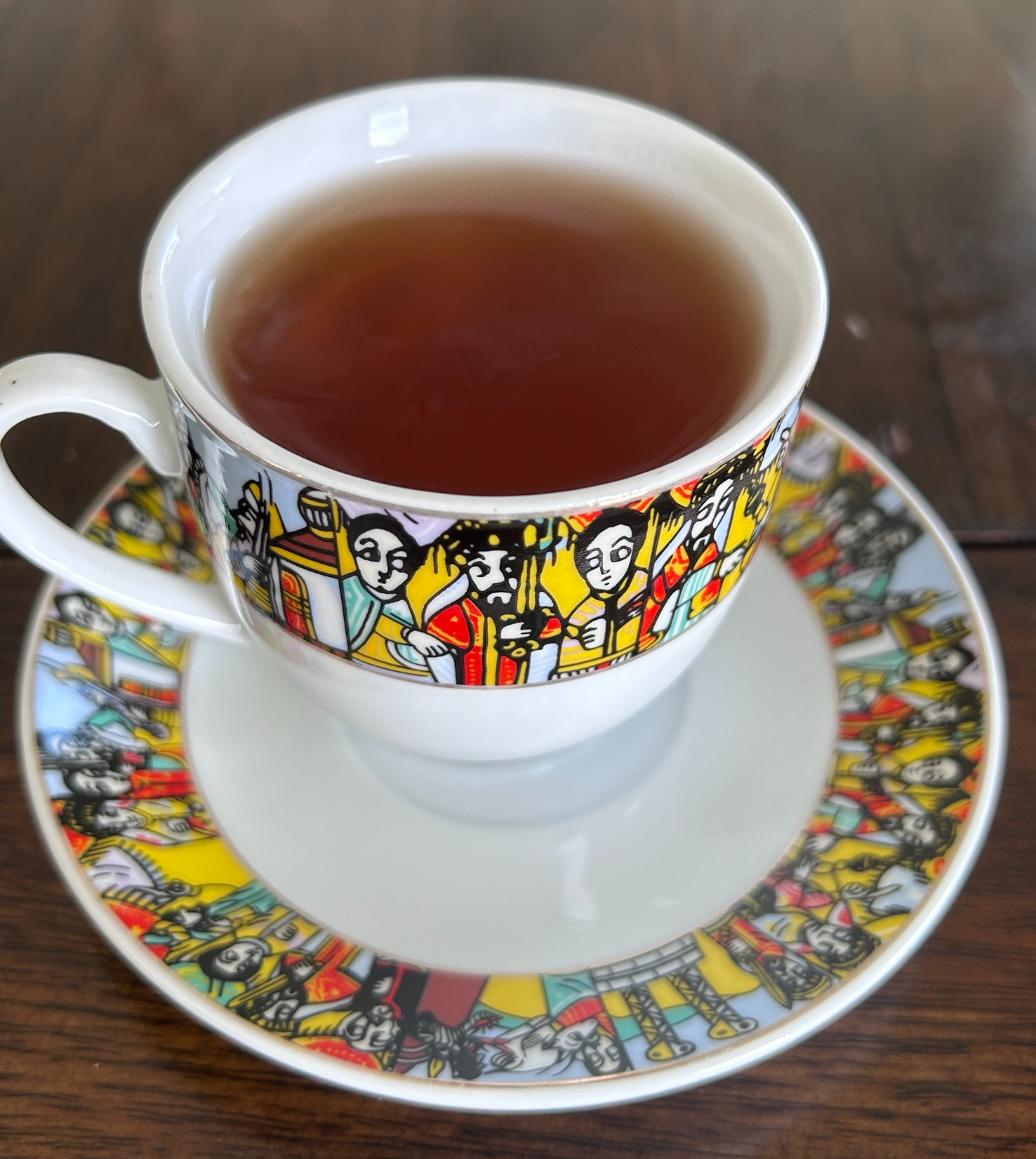
Leave a Reply